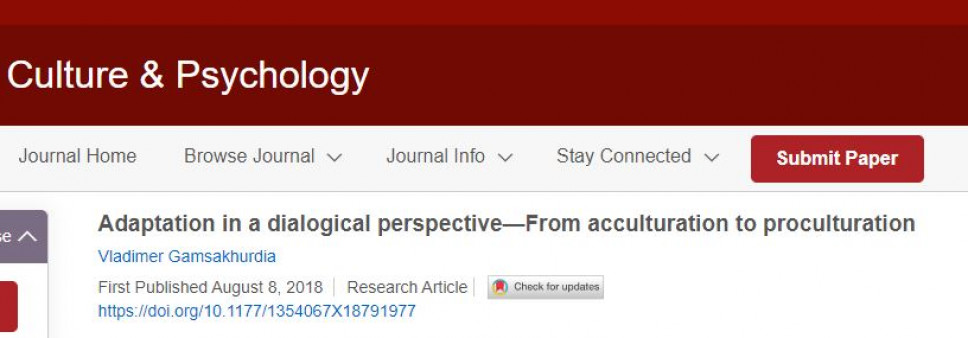Adaptation in a dialogical perspective—From acculturation to proculturation
This article aims to provide a reconsideration of the adaptive processes unfolding while meeting novel cultural elements in a dialogical perspective. The mainstream acculturation studies are criticized for seeing sociocultural transformations in a mechanistic and essentialist way and the term of proculturation is proposed instead, to emphasize constructive and subjective nature of human adaptation to novelties. Proculturation develops when a person faces any kind of novelties. It is a continuous process. Each proculturative experience inevitably makes imprint on personality, as any meeting with new ideas is interpreted subjectively and becomes part of a cognitive and affective experience. Proculturation can be initiated even without leaving home as globalization and modern mass media spread cultural elements from culture to culture easily throughout the whole world. Cultures overlap and constitute worldwide web of meanings. I propose ways for the integration of dialogical self theory (DST) and social representation theory (SRT). The term of social representation should be integrated in DST by replacing the term of meta-position as they serve essentially the same meaning in their theories respectively. In this way, dialogical self (DS) obtains processual dimension mediating through the personal and societal processes. Human subjectivity is contemplated as the stem of a semiotically mediated system of persons, cultures, and societies.










